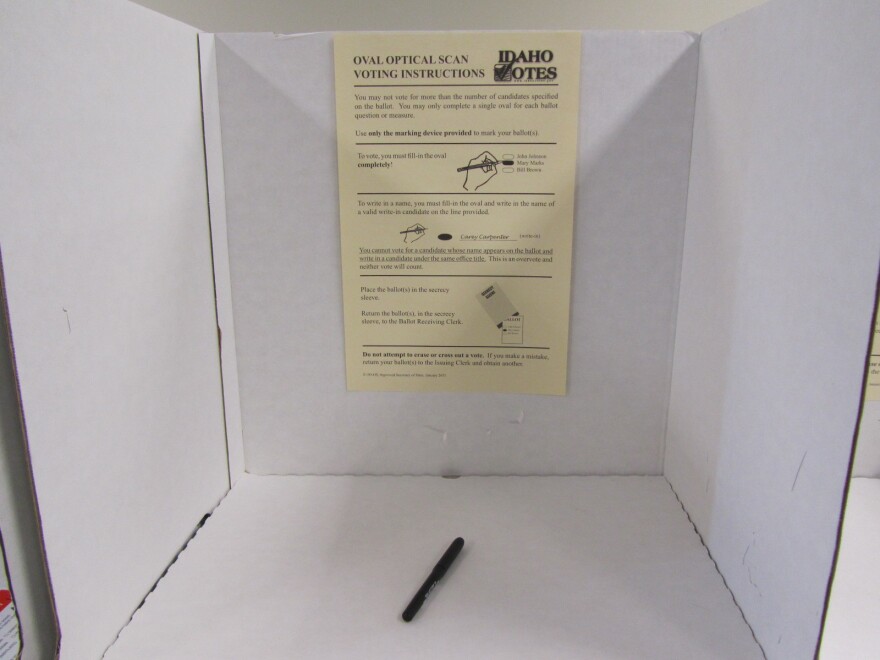Ada County’s Chief Deputy Clerk Phil McGrane describes the upcoming November election this way, “It’s a nice, clean, old-fashioned election.”
He says it will be a big change from the May Primary. “Don’t have to pick a party, don’t have to pick a ballot, no other selections that you have to make.”
%22Don%27t%20have%20to%20pick%20a%20party%2C%20don%27t%20have%20to%20pick%20a%20ballot.%22%20Phil%20McGrane
May was a challenge for county clerks and voters, thanks in large part to Idaho’s change in primary voting rules. The state Republican Party closed its primary, and the Democrats left theirs open. That meant voters had to choose a party, and then pick a ballot.
Idaho Secretary of State Ben Ysursa says that won’t happen this election. “The clerks will not be asking which party’s ballot you want or whatever. It’s on one big ballot and all the parties are listed and in the privacy of your voting booth, you make that selection.”
In the primary, voters were restricted to voting a straight party line. Ysursa says this time you can jump all over the ballot. “You can vote for a certain party person for President and another party for Congress or whatever, in the general election, we don’t worry about the parties.
%22Your%20voting%20spot%20may%20be%20different.%22%20Phil%20McGrane
Voters may see other changes. This year the state’s political lines were re-drawn to reflect changes in population. Phil McGrane says that means you could be voting in a different district on election day. “Your voting spot may be different, your precinct entirely may have changed and even the district you were in may have changed previously. So for one candidate you voted on previously, may not be on your ballot this time.”
In other words, check with your county clerk before you head to the polls. And make sure have the right identification when you go to vote. Idaho’s voter ID law changed two years ago. You’ll need a photo ID, like a state driver’s license or a passport, to vote. But if you don’t have one, you can sign an affidavit, testifying you are who you say you are.
If%20you%20don%27t%20have%20photo%20ID%2C%20you%27ll%20need%20to%20sign%20an%20affidavit%20in%20order%20to%20vote.
There’s one more quirk left over from the May primary. Think Idaho’s a Red State? Not technically, at least not right now. Here’s why. Under the new primary law, anyone who voted in May had to pick a party. That’s about 24 percent of voters. For everyone else…“Everybody who was already registered and did not participate in the primary are Unaffiliated at this point,” says Ben Ysursa.
76%20percent%20of%20Idaho%20voters%20are%20Unaffiliated.
Anyone who didn’t vote, but was registered, was automatically assigned a party. Ysursa says that means 76 percent of all voters in Idaho are now listed as Unaffiliated. So, on the voting books, the majority of voters aren’t aligned with any party. Ysursa says that makes no difference for the upcoming November election.
But Republican, Democrat, or Unaffiliated...whichever way you lean, Ysursa says, get out and vote. “It’s the most important part of our democracy and we need more people to participate.”
Early voting in some parts of the state is already underway and absentee ballots have been available for a few weeks. Polls open on November 6 at 8am.
Copyright 2012 Boise State Public Radio





